This is the third blog of a series of posts that I’ll be writing over the next two weeks as I venture across Spain to bring Walking the Camino even closer to home – Santiago de Compostela.
Second Preface: Today’s post is a reflection on Saturday’s Foro del Camino de Santiago in Villafranca del Bierzo being hosted by the Fraternidad Internacional del Camino de Santiago. It was a day filled with discussion and debate about the past, present, and especially future of the Camino de Santiago.
One thing I have come to observe since working for the documentary that on and off the Camino, there are so many different ideas people have about how the Camino “should” be done.
As my dear friend and one of my roommates Steph says, “don’t ‘should’ on yourself.” To say, “don’t hold yourself to judgments.”
Here was a key topic today that brought about some heated debate: pilgrimage vs tourism. Are tourists on the Camino pilgrims? I think we are all pilgrims in life, and as Tómas says in the documentary, “if this pilgrimage changes you, it is, in and of itself spiritual.” What if it doesn’t change someone? Is that tourist still a pilgrim? This latter question is one for debate as well, but written here mostly for rhetorical purposes.
Left – Yellow Arrow in O’Cebreiro // Right – St. James crossing the bridge on the Camino in Villafranca del Bierzo
In this roundabout of tourism vs pilgrimage, I have heard and read some judgment about who is a pilgrim and who isn’t a pilgrim based on how they choose to do their Camino, which I think unvortunatly we all fall victim to in a society that preaches comparison and always being the fastest-strongest-smartest-
As it exists, there is more than one way to do the Camino, even if everyone walks the Camino Frances or the Camino Portuguese or the Camino del Norte or lo que sea (whichever). And as there is more than one way to do the Camino, there is more than one way to live a life. Isn’t that one of the lessons the Camino teaches us as a huge lesson at its core, that is inherent in our DNA and bones: to recognize that everyone has a different path, and honor those paths, even if we don’t agree with them? And to honor our own as well?
Two signs of the Camino
Left – Literal // Right – A Reminder to keep an open heart
At the end of the day, it doesn’t really matter what other people think about anyone else’s journey. No one can truly understand your Camino, be it to Santiago or your journey in life, as you can. No one except for you and God, or higher power, or Universe, or whatever you call it if you believe in it or not. I think this last conclusion is one I have particularly come to personally that I believe applies to the Camino, and life as a whole, as well.
I don’t mean to offend anyone – on the contrary. I mean to express to everyone that however you do your Camino, I honor you and value you and respect you for embarking on a journey and following the call.
At the end of the day, I hope you try not to should on yourself, or on anyone else. We are all different and here for unique purposes, and it is all part of a very beautiful journey, even if it takes some mountains and mesetas and blisters to reach that grace. Ultreia and buen camino, dear friends.
My feet at a yellow arrow outside of Albergue de la Piedra in Villafranca del Bierzo

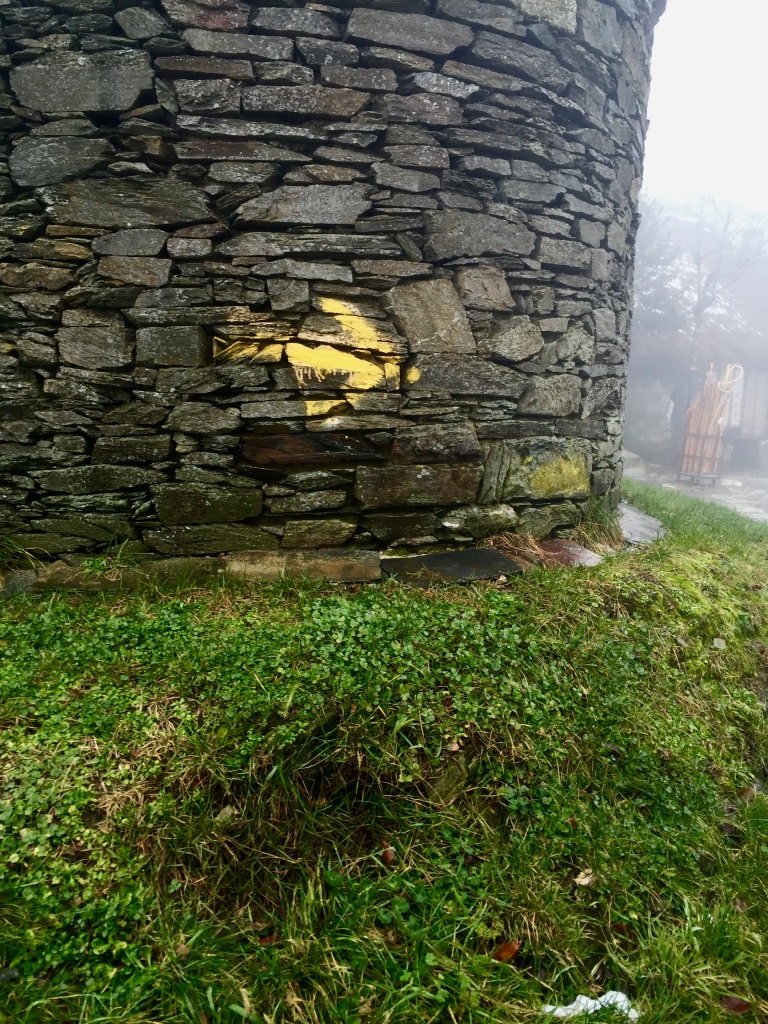
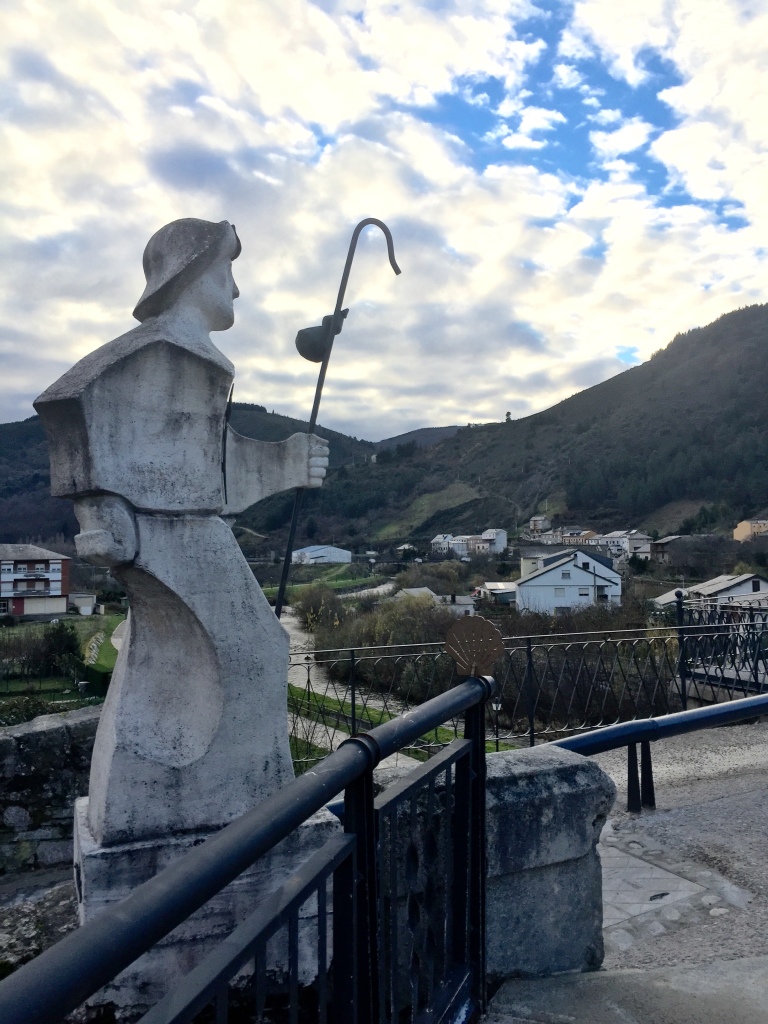
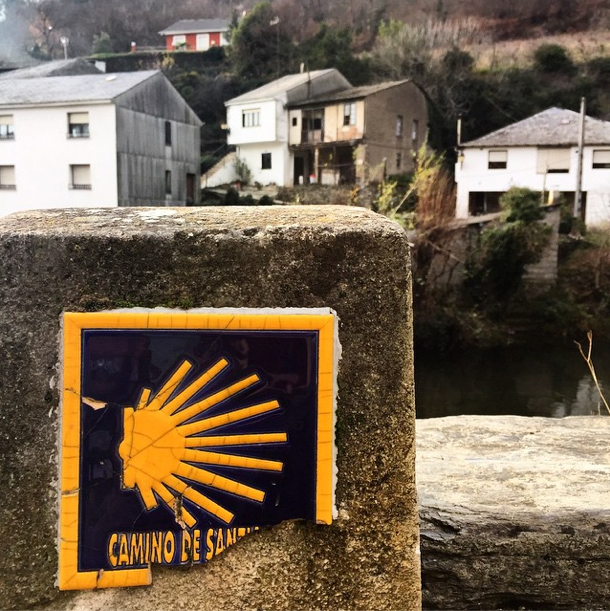
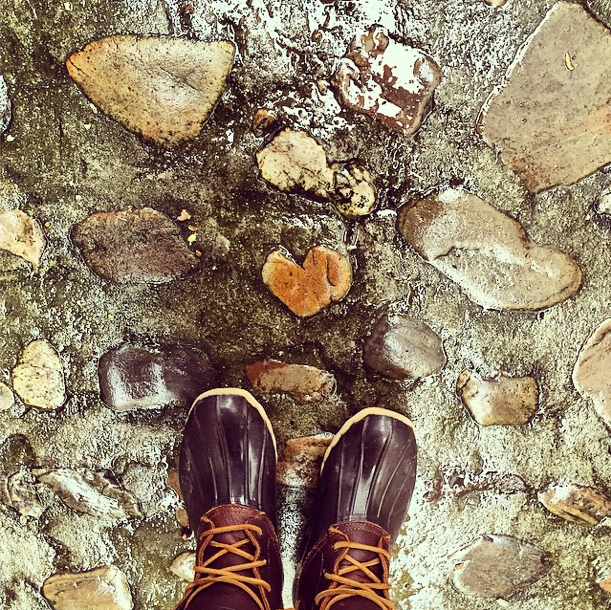
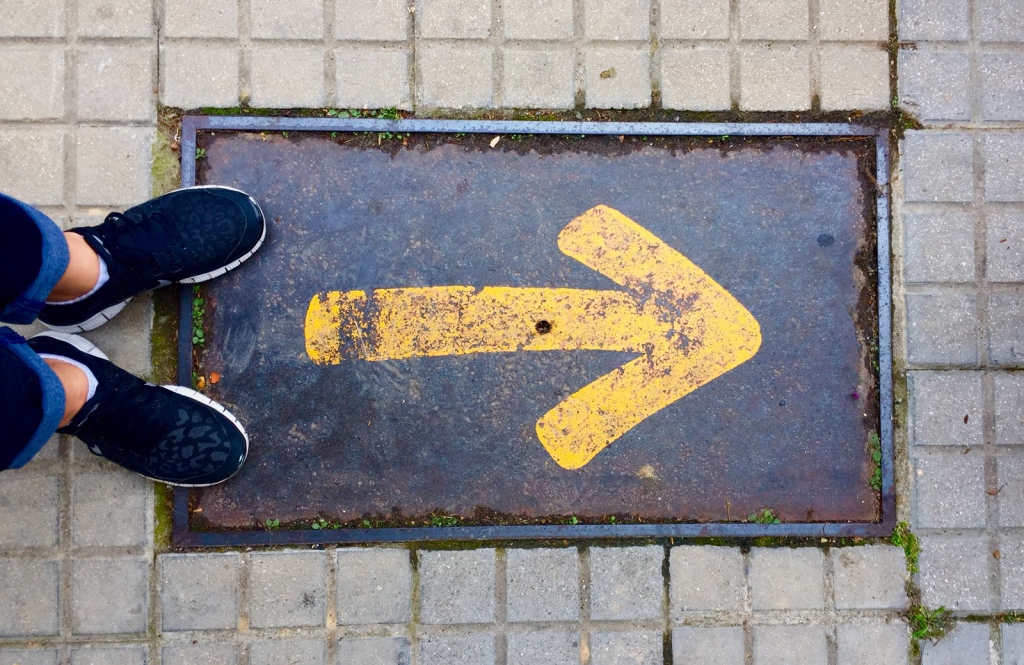
Oh Maggie, another lovely, thoughtful, profound post! Thank you! It is so fun, knowing that you are so far away in miles, and yet feeling so connected with you at the same time. Is it because you write so honestly, straight from the heart? Is it because I was so fortunate to have you stay with me recently and I can still feel your vibe here in my home? Is it because I pray for pilgrims each day, and now you are immersed in pilgrims and pilgrimage? Maybe all of those! Maybe because the little angel you left with me is hanging at my door, quietly greeting me each time I come home, with her shell, her beauty, her poise. Just like you! Ultreia, dear one!
Thank you Annie! Your words mean so much to me and are so dear and so straight from your heart as well. Lots of love being sent your way!
For me pilgrimage has more to do with spirituality. It doesn´t matter if you are religious or catholic. A pilgrimage lefts a shadow that lasts further than a tourism trace. You can walk the Camino on your day by day and it doesn´t mean to walk on the physical Camino. A Pilgrim is a soul voyager searching something that sometimes even he or she doesn´t know. A tourist take photos with his camera, a pilgrim takes the path and it´s a living part of it today, tomorrow and always.
Desde España, Zaragoza – camino del Ebro, un abrazo y buen camino!
Hi Joaquin, that is such a beautiful way of describing pilgrimage – we are very much on the same page about the spiritual component to it, and as Jack says in the documentary “for me, life and spirituality are so intertwined that I don’t think the two can be separated.” Thank you for your beautiful words and sharing them. Un abrazo y buen camino back to you!
Maggie Jane,
For consideration:
Is a physical destination always necessary to be a “Pilgrim”?
ttfn, xo
m
Mom,
It is not necessary to have a physical destination to be a pilgrim, I don’t believe. I believe we are all pilgrims, that life is a pilgrimage. In that case, the destination isn’t physical, rather metaphysical.
Love you lots!
I have been involved in the Camino for nearly 14 years and only once have I heard a pilgrim say that they were planning on walking to the tomb of Saint James in Spain. The many hundreds of others I’ve met all say that they are planning to ‘do the Camino’. The Santiago archdiocese says that walking to Santiago is not the goal, revering the remains of the saint in the cathedral is the goal. Between 4 and 10 million pilgrims visit the tomb of Saint James every year. ± 2 % of those have walked there. Is a pilgrim one who journeys to the tomb of Saint James, or one who ‘does the Camino’ ?
Hi Sylvia, I think that is a very good question. Do you mean that between 4 and 10 thousand pilgrims visit the tomb of St. James every year? Or perhaps 4 to 10 million people in general? In any case, the question of the definition of a pilgrim being someone who “does the Camino” or someone whose goal is to visit the tomb of St. James, I think that as the Camino is open to all people of all religious traditions and backgrounds and belief systems, that everyone is a pilgrim, even though the Archdiocese of Santiago says that the goal of the Camino is to revere the St. James. It’s a good question, one for lots of thought and many different perspectives. Thank you for sharing and asking!